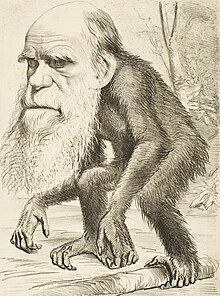 In a fable going back centuries within various cultures, a simpleton sees the reflection of the full moon in water and imagines that it’s a wheel of green (that is, young) cheese. It’s a tale that we often pass on to our children and that we discard with time, like belief in the Easter Bunny.
In a fable going back centuries within various cultures, a simpleton sees the reflection of the full moon in water and imagines that it’s a wheel of green (that is, young) cheese. It’s a tale that we often pass on to our children and that we discard with time, like belief in the Easter Bunny.
But how do you know that the moon isn’t made of green cheese?
Physicist Sean Carroll addressed this question recently. After a few moments exploring physical issues like the moon’s mass, volume, and density and the (dissimilar) density of cheese, he gave this frank broadside:
The answer is that it’s absurd to think the moon is made of green cheese.
He goes on to say that we understand how the planets were formed and how the solar system works. There simply is no reason to suppose that the moon is made of green cheese and plenty of reasons to suppose that it’s not.
This is not a proof, there is no metaphysical proof, like you can prove a statement in logic or math that the moon is not made of green cheese. But science nevertheless passes judgments on claims based on how well they fit in with the rest of our theoretical understanding.
Bringing this thinking into the domain of this blog, how do we know that Jesus wasn’t raised from the dead? The answer is the same: it’s absurd to think that Jesus was raised from the dead.
- We know how death works. We see it in plants and animals, and we know that when they’re gone, they’re just gone. Rats don’t have souls. Zebras don’t go to heaven. There’s no reason to suppose that it works any differently for our favorite animal, Homo sapiens, and plenty of reasons to suppose that it works the same.
- We know about ancient manuscripts. Lots of cultures wrote their ancient myths, and many of these are older than the books of the Old Testament: Gilgamesh (Sumerian), Enûma Eliš (Babylonian), Ramayana (Hindu), Iliad (Greek), Beowulf (Anglo-Saxon), and so on. For whatever reason, people write miracle stories, and we have a large and well-populated bin labeled “Mythology” in which to put stories like those in the Bible.
- We know about how stories and legends grow with time. We may have heard of Charles Darwin’s deathbed conversion to Christianity (false). Or that a decent fraction of Americans thought that President Obama is a Muslim. Or that aliens crash-landed in Roswell, New Mexico. In our own time, urban legends so neatly fit a standard pattern, that simple rules help you identify them.
- We know that humans invent religions. There are 42,000 denominations of Christianity alone, for example, and uncountably many versions of the myriad religions invented through history.
Natural explanations are sufficient to explain Christianity.
Might the moon actually be made of cheese? Science doesn’t make unconditional statements, but we can assume the contrary with about as much confidence as we have in any scientific statement.
Might Jesus have been raised from the dead? Sure, it’s possible. But the facts don’t point there. Why imagine that this is the case?
Photo credit: TV Tropes
Related posts:



 In a
In a 